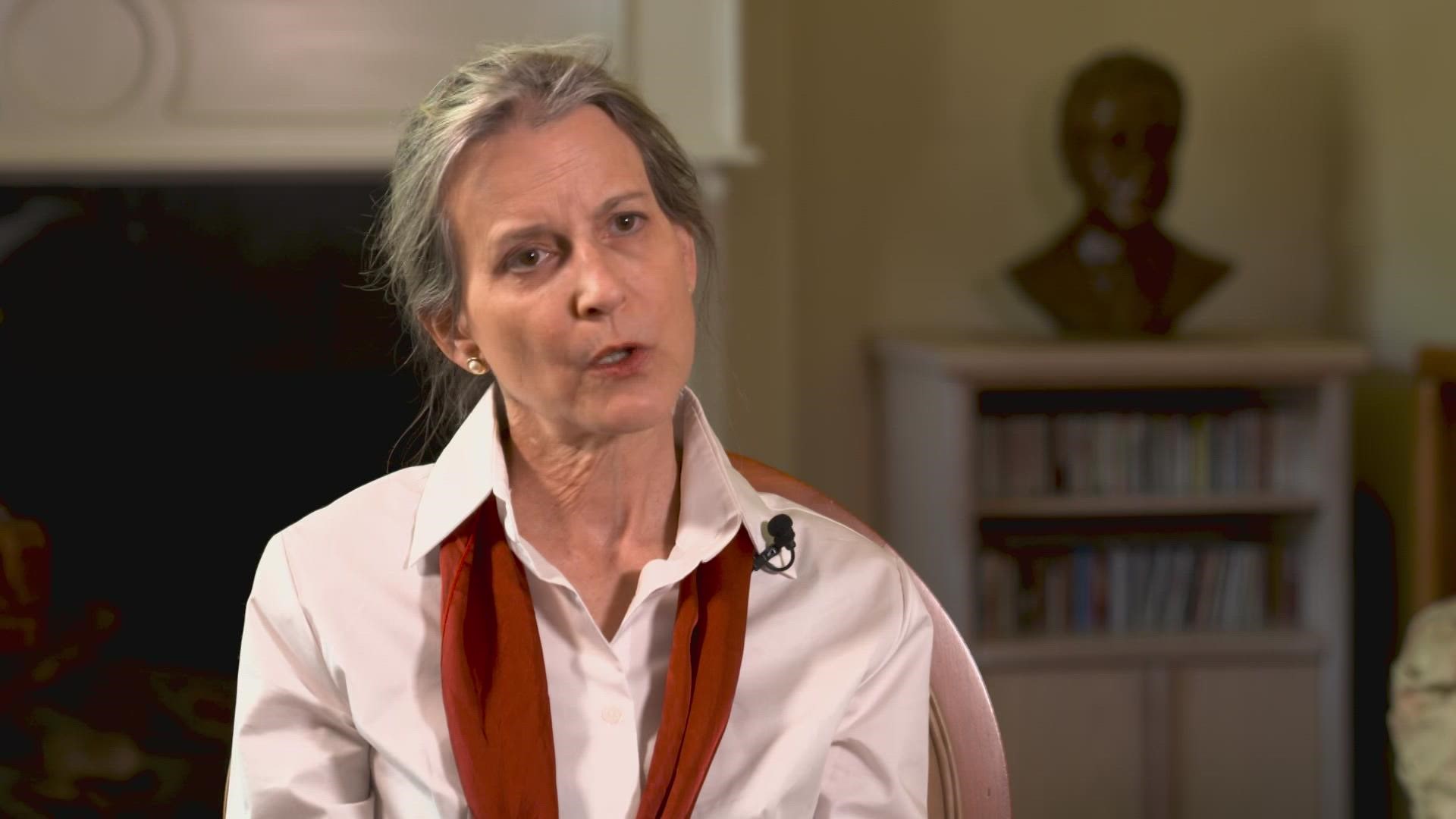DALLAS — For the past two weeks, Beverly Hill has been glued to either her cell phone or her laptop.
“From the moment I get up to the moment I go to bed, I have done nothing else," Hill said.
Hill is the president and founder of the Gendercide Awareness Project. The group works to educate and advocate for women in girls in developing countries where they're not given equal access to education and resources.
A couple of years ago the organization sent winter clothes to Afghanistan for girls who were forced to attend school outside in the middle of winter if they wanted to learn.
For the past four years, she's been messaging back-and-forth with a 25-year-old Afghan woman who teaches girls and is very vocal about the Taliban's practices.
"She had such a passion for this," Hill said. "She felt she had a calling, a mission. This was her life’s work.”
Hill said she can't share the woman's name or picture because she's been in hiding since the Taliban invaded Kabul.
“She would send me pictures of explosions in the distance. They were occasional," Hill said. “Before she knew it, she sent me a picture of everyone racing down the stairwell in her building."
Hill said she has been able to communicate with her because she and her husband have been sending her cellphone data. Hill said the woman has had to move from home to home, has gone days without food and water and even to leave one of the rooms she was able to find because someone reported her to the Taliban.
"She's in grave danger," Hill said. "She's been sending me pleading messages."
Hill said since the woman is not affiliated with the U.S. military, is from Afghanistan and hasn't been able to get to neighboring countries to seek asylum. She wasn't able to apply for the proper paperwork to evacuate until recently.
There's also the issue of actually getting to the airport.
“They tried to get to the airport, but the Taliban won’t allow unaccompanied women, meaning unaccompanied by a male guardian, to go anywhere so they were told to go back home," Hill said.
While it was already difficult for women in Afghanistan who were already struggling to gain rights and get an education, Hill said her friend is proof there was progress being made. Even if she is able to get the woman out, she worries about the next generation under Taliban rule.
“The next generation will not be educated. Will never work. Will not know independence," Hill said.
Hill said she and her husband were able to get the paperwork for the woman, and she said it was a strenuous process. Though they've made progress, Hill said her confidence is wavering with her friend in such an unstable situation with a guaranteed way to even get through the airport.
"I don’t know how on earth she can do it," Hill said. "She’s with other women. There’s no male family member. No male guardian. I’m not going to give up. I will keep trying. I will try and try. We want to sponsor her and her friend. We won’t give up.”

